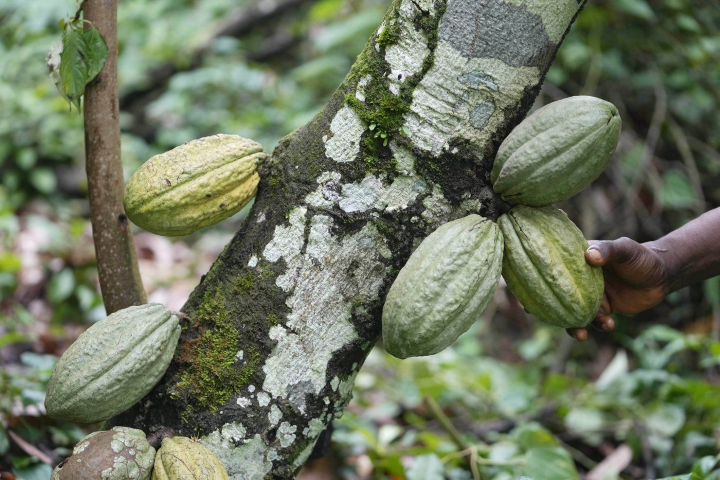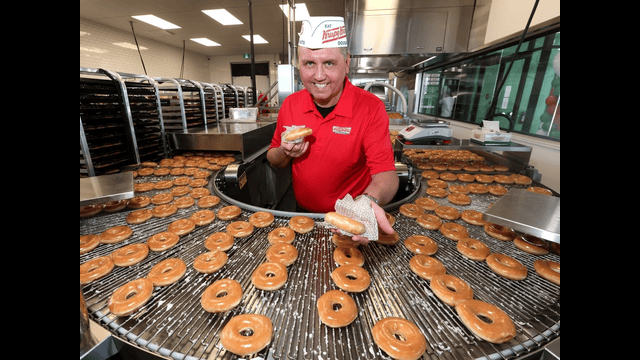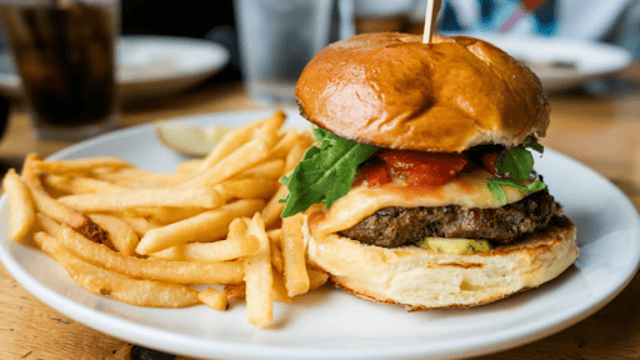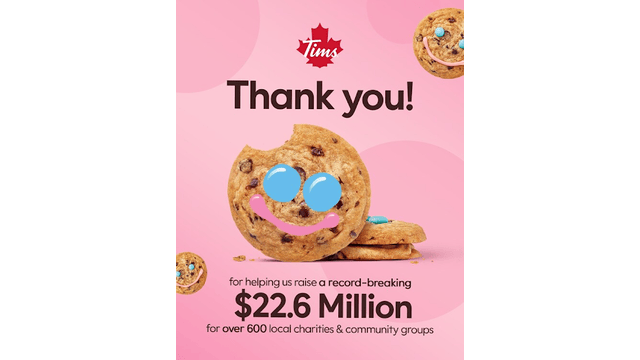
A farmer checks cocoa pods at his farm inside the conservation zone in the Omo Forest Reserve in Nigeria on Wednesday, Aug. 2, 2023. File photo by The Associated Press/Sunday Alamba
Chocolate prices are climbing this Easter due to poor crops in West Africa, adding to a series of disruptions in the food supply chain that consumers are increasingly noticing. Sophia Carodenuto, a geography professor at the University of Victoria specializing in global food systems, suggests that people are becoming more interested in the origins of their food.
Recent years have seen various disruptions in the food market, such as a surge in lettuce prices due to flooding in California, increased orange juice costs because of crop failures, and higher wheat prices linked to the Russia-Ukraine conflict. Graeme Crosbie, a senior economist at Farm Credit Canada, notes that such disruptive events seem to be occurring more frequently.
Cocoa futures, in particular, have surged, especially over the past few months. According to Crosbie, cocoa prices have skyrocketed, impacting the confectionery industry, which heavily relies on cocoa as a key ingredient. A report by CoBank highlights that cocoa prices have soared by nearly 65% compared to the previous year, reaching a 46-year high in New York futures prices.
The recent surge in cocoa prices is attributed to adverse weather conditions and diseases affecting crop yields in West Africa, a major cocoa-producing region. Côte D’Ivoire, which accounts for approximately 40% of the world's cocoa production, experienced a 30% decline in output due to climate change and diseases. This has led to a significant rise in commodity prices, particularly in the cocoa market.
Carodenuto emphasizes that climate change has disrupted traditional weather patterns, affecting the rainy and dry seasons, which are vital for cocoa cultivation. The concentration of cocoa production in a few regions makes the supply chain vulnerable to disruptions, further exacerbating the situation.
While cocoa prices don't directly translate to retail prices, they do have an impact. Crosbie anticipates that retail prices will increase as a result of the surge in cocoa prices. Statistics Canada's inflation data indicates a notable increase in the price of confectionery items compared to overall food inflation.
Michael Medline, CEO of Empire Co. Ltd., which owns Sobeys, acknowledges significant price increases from suppliers, attributing them to volatile commodity prices, including cocoa, influenced by climate and geopolitical factors. Billy Roberts, a senior food and beverage economist, warns that higher cocoa prices may lead to a decline in chocolate sales, affecting both volume and dollar sales.
Consumers are increasingly aware of these disruptions as food prices rise across the board. Crosbie observes that people are paying closer attention to prices and the production methods of their food. A survey by Deloitte underscores the importance of understanding food origins to consumers.
Carodenuto underscores the need for consumers to make informed choices about their chocolate purchases, emphasizing the importance of transparency in the supply chain. She suggests that consumers educate themselves about the origins of cocoa in products and consider supporting businesses that prioritize ethical sourcing practices.
While there is potential for cocoa to be grown sustainably in the long term, it may require short-term sacrifices. Carodenuto emphasizes the importance of supporting cocoa farmers and ensuring that they are not burdened with the costs of transitioning to more sustainable practices.















